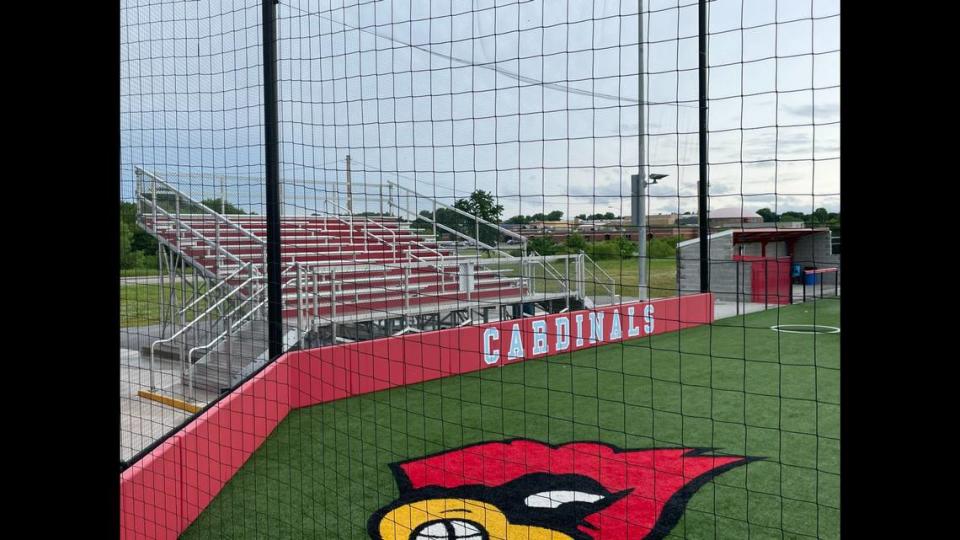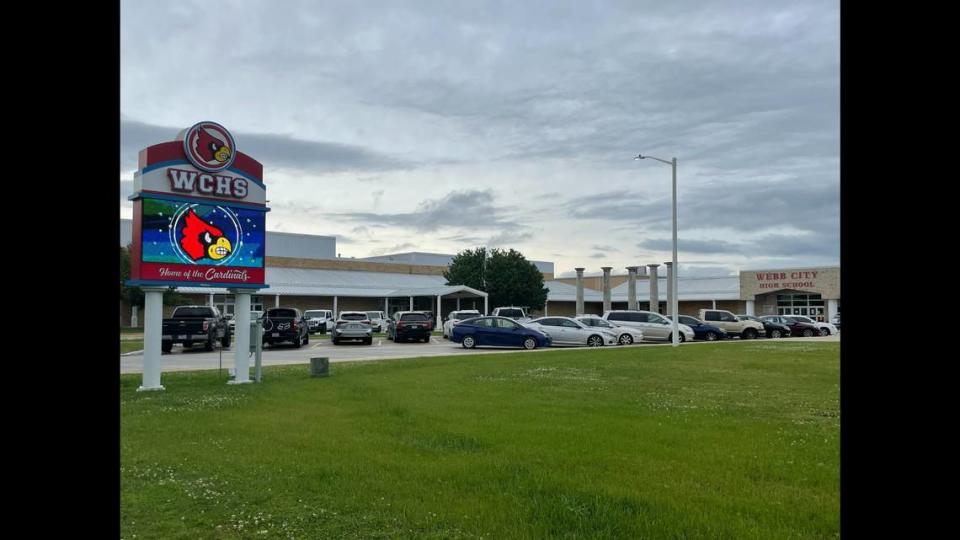Afghan family resettled in small Missouri town faced isolation. Now their son is dead
As a boy in Afghanistan, Rezwan Kohistani dreamed of being a respected doctor and helping people.
When he and his family escaped war-torn Kabul last August, his parents hoped resettling to the United States would bring their oldest son closer to that dream and give his five siblings a chance at a quality education in a safe place.
Maybe they’d end up in Dallas, where extended family already lived. Or Los Angeles. Either city would give them the emotional support and community they needed.
But they landed in Webb City, a southwest Missouri town of about 12,000 people that is 90% white. Another Muslim family could not be found for miles. Even at the local mosque, few people spoke their Dari dialect.
The family felt alone.
“We didn’t know anybody here,” Lemar Kohistani said last week through an interpreter. “We didn’t have any communication with anyone.”
Rezwan, whose mother called him handsome, would feel that isolation even deeper. And on May 5, just five months after the family moved to southwest Missouri, the teen would be dead of what authorities in Webb City believe was a suicide, according to Police Chief Don Melton.

For the first time, his parents, Lemar and Muzhda Kohistani, sat down last week with reporters to talk about their grief. About how, after losing one of their five sons, everything they hoped for was now shattered.
And they explained how, even from the beginning, life in the United States wasn’t what they expected.
No one was there to help orient them to their new home aside from a few volunteers who had stocked their fridge with food, Lemar Kohistani said. RAISE Community, a nonprofit tasked with helping the family, dismissed their concerns, he said.
“When I first got here, I didn’t have a car or any transportation,” he said.
According to Lemar Kohistani, it felt as though they had no community in Webb City, except a neighbor and the volunteers who occasionally drove them to the market or the mosque, about 15 miles south.
Rezwan was the first Afghan student to attend Webb City High School, where no one spoke his language or understood his background. While school officials said he appeared well-liked, his mother said he was picked on by classmates.
His death drew nationwide attention from civil rights groups and refugee advocacy agencies, causing them to question why families like the Kohistanis were being resettled in remote areas with little support.
“I said I don’t want to stay in this home, it’s not good. My family, they are not happy here,” Lemar Kohistani said.
Refugees are often placed in cities where they have family or where there’s a community of people from the same culture, according to the humanitarian group International Rescue Committee.
RAISE Community did not respond to multiple phone calls. When a reporter from The Star asked to speak with a member of the organization last week at Cross Line Ministries in Joplin, a nonprofit where RAISE had reportedly been renting space, staff said RAISE’s director would not speak and escorted them out the building.
No one answered when the reporter visited RAISE’s headquarters in Noel, about 50 miles south of Joplin. A voicemail later in the evening from a blocked number said to refer inquiries to the U.S Department of Health and Human Services.
The only other communication came from Mike Newman, the nonprofit’s executive director, who declined to be interviewed until the investigation into Rezwan’s death was complete.
A small town in Missouri
A water tower with the words “Proudly We Hail Webb City” flanked by two American flags overlooks the town, which sits about seven miles northwest of Joplin. Sprawling plains separate single-story houses and stores, with roads snaking into overgrown grass.
The Kohistani’s new home sat just off the main road with a church around each corner.
They arrived with little other than the clothes on their backs. Volunteers with RAISE Community stocked their refrigerator with food and set up furniture.
Monique Holly, a neighbor down the road, said she delivered bags of clothing and hygiene products to the family.
She said the Kohistani boys occasionally came over to play video games, since the family was struggling to access the internet.
Communicating with the family was difficult at first, Holly said, and Rezwan occasionally translated because he had been learning English.
“I am all for helping people, but it made me mad,” she said. “Why would you move a family from another country to a city so small, that doesn’t have the resources to help them?”
“I don’t even know of any grocery stores with food that they would be familiar with.”
A coffee shop down the road and a Dollar General about a half mile away were the only stores nearby.
“All the markets, they were very far from our home and my whole family, they were so sad about this situation,” Lemar Kohistani said.
The Islamic Society of Joplin runs the only mosque in the area. Their former building had been a church, according to a leader in the community, who declined to share his name for fear of retribution. Signs outside the mosque were often defaced or riddled with bullets.
In 2012, the mosque was burned down in an arson. Now relocated to a new building, the mosque sits behind multiple security cameras and a black gate with no clear markings. Mosque members are asked to help pay for the extra security.
He said that in larger, diverse cities they would be able to express their faith more freely.
“Here, what I noticed, kids are not proud. They are afraid somehow. They are shy about sharing their identity,” he said. “It’s because we are a minority and there are very few of us.”
While the leader was unaware that the Kohistani family was struggling, he provided assistance following the death of their son. He still does not understand the 14 year old’s death, like many other community members.
“It doesn’t make sense ... How come this guy is able to overcome all the challenges in Afghanistan and he cannot overcome the challenges in America?”
Culture shock
In Afghanistan, Rezwan earned good grades and loved playing soccer and cricket.
At age 14, he was tall and lean. The girls loved him, his younger brother said, and that made other kids jealous. He had many friends in school and on sporting teams.
To his father, Lemar Kohistani, the teen was dutiful. They prayed together. Rezwan was never caught saying a bad word.
Life here in America would be full of challenges. He no longer played soccer. In Webb City, his grades dropped dramatically and he was failing multiple classes. Many of his peers could not understand him and during Ramadan, he was teased for fasting.
Translators in Webb City were hard to come by. The local school district did not have any who spoke Dari.
Rezwan was placed in English language classes with mostly Spanish-speaking students. Even when he tried to communicate, his accent stuck out.
He and his brothers were enrolled in the local junior high school in January, but after a few days, the 14-year-old was transferred to the high school about a half-mile away because of confusion about his age.

Emails obtained by The Star show school administrators struggled to find the resources to support Rezwan. He missed school days and teachers were worried. When one teacher reached out to RAISE Community in February, the organization’s school enrollment specialist replied three weeks later in March, unaware of his absenteeism and other issues.
The emails also show the family had plans to move to Dallas to be closer to relatives. At one point Rezwan also asked to move in with an uncle in Joplin.
While many of his peers bonded over a culture of football or baseball, Rezwan was not part of a sports team.
A classmate who shared a homeroom with Rezwan remembers him sending texts and voice messages to friends in Afghanistan while other kids talked around him. He was quiet and kept to himself, but would show pictures of him and a cousin when asked about his life, she said.
They’d pass each other between classes. If she looked tired, Rezwan would pinch her shoulder.
His mother mentioned classmates were making fun of him during Ramadan. She told him she’d reach out to the school if it continued, but was doubtful anyone would listen because of the language barrier. It did not worry her since her husband was working on plans to move them to Dallas anyway.
“I told him ‘Don’t worry, just forget it,’” she said. “Unfortunately, I just didn’t take it seriously.”
An empty bedroom
Muzhda Kohistani remembers her son saying goodbye and leaving for school on the morning of May 4.
He never came home.
She replays the moment when the two had excitedly envisioned a safe life and a good education in the United States.
Now she cannot even walk by her son’s bedroom.
It is why, on May 27, the family moved into a hotel. They have two bedrooms shared among the parents and five remaining siblings.
Lemar Kohistani insists he will still get his family to Dallas. A GoFundMe has been set up to help the family and has raised over $35,000 as of Tuesday.
An email obtained by The Star said an agency in Dallas has pledged to help secure an apartment, a few months rent, furniture, food, employment and other basic services within the area for the family.
Lemar Kohistani said in the June 7 interview that the family will stay in Webb City until the teen’s cause of death is confirmed and the police investigation is completed.
Their days are filled with waiting.
In his mind, Lemar Kohistani replays a trip to Dallas, where he and Rezwan visited family and discussed their dreams in a new place shortly before the teen’s death.
Rezwan told his father “As far as I know, doctors make too much money in the United States.”
“I will be a doctor in the future.”
Lemar Kohistani quit his job at a furniture manufacturer in anticipation of moving to Dallas. But now, despite working his entire life, he can’t find the strength to keep going.
A pain in his ribs appeared days after Rezwan’s death and makes standing for over an hour difficult, he said.
“I work very hard, you know?” he said. “But with Rezwan dead, my back is broken.”

